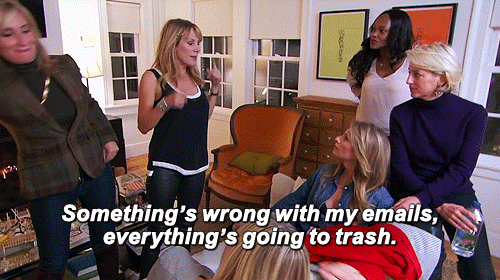Would It Help You If Your Company Banned Emails?

Are work emails stressing you? Meghan Markle, the Duchess of Success made headlines last year when staff accused her of sending emails at 5:00 a.m. What’s normal to us stressed the delicate sensibilities of palace courtiers. According to the Radicati Group as of 2018, there were about 124.5 billion business emails sent and received each day. The result: a volatile cocktail of emails either unread or awaiting action, causing stress and burnout as we struggle to read and respond in a timely manner and often during meetings. The worst offenders–emails that don’t require any action, they’re just sent to keep us “in the loop”. You haven’t suffered until you’ve endured an email chain where everyone feels compelled to hit “reply all”. We’re suffering from email anxiety.

What if I told you that it can all go away? That’s right, businesses are banning email at work, at least internally among staff. External emails to clients are still approved. Companies are switching to online apps (Dropbox, Asana) and team collaboration software (Slack) for chatting, task management and document sharing in lieu of emails. The latest to jump on the bandwagon is a trendy startup travel company, whose CEO told Fortune: “We’ve outlawed internal emails at Away (they’re very exclusionary!), so I can’t live without Slack.”

Does it really work? In making the attempt, these companies are significantly reducing the amount of emails and are seeing some benefits. Research has shown that productivity goes up and stress levels go down when you limit emails. Would it help you if your company outlawed internal emails? Yes, it definitely would. The effort to ban internal emails has highlighted two key areas where companies can help manage our email anxiety.

It’s The Checking Of Email That Is The Most Stressful
In 2018, RingCentral surveyed 2,000 workers and found that people are so obsessed with email that 30% check it more than 20 times a day. It’s also the first things most workers check in the morning (48%). Reducing how often you check email during the day would cut down on workplace telepressure – the preoccupation and urge to respond quickly to messages. Which, as the Journal of Occupational Health Science reported in December 2018, is linked to disengagement, physical exhaustion and sleeping problems. All classic signs of burnout. Employees are not obsessively checking because they want to, they often feel that they have to. When companies seek to limit emails, it sends a powerful signal to employees and reduces the pressure to obsessively check for emails.
Gaining The Right To Disconnect
We may leave work, but we are never disconnected. One of the benefits to a zero-email policy is it can help kick-start a conversation across the company about when employees can reasonably be expected to skip after work emails. Getting agreement on when we can stop checking our inbox would help mitigate the adverse effects that come from never disconnecting and significantly improve our work life balance. It might be during dinner hours or after 10:00 p.m., either way having management in agreement on this issue would ensure it is implemented.
If you are burdened by managing and sending emails, then it benefits you to start the conversation and encourage your team to reduce internal emails and use more collaboration tools. It’s a proven way to increase productivity and reduce stress.






